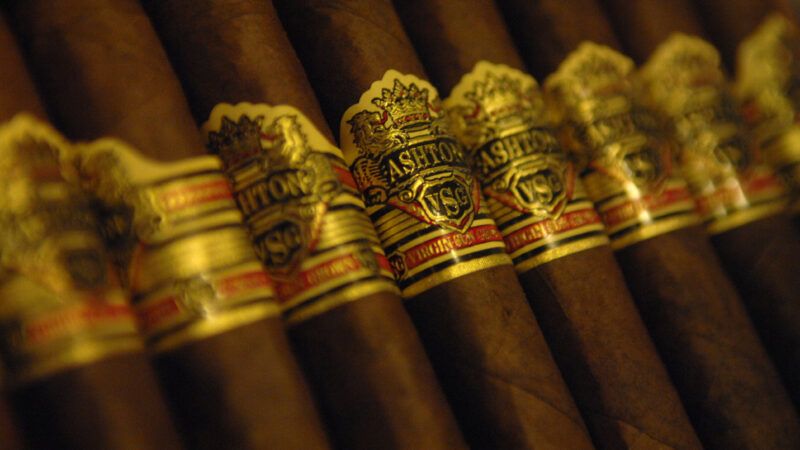Cigars Aren't Cigarettes. A New Bill Proposes That the FDA Regulate Them Accordingly.
A bipartisan bill in Congress seeks to get the FDA out of the premium cigar industry.

A bipartisan bill in Congress seeks to get the Food and Drug Administration (FDA) out of the premium cigar industry.
The measure, from Reps. Kathy Castor (D–Fla.) and Bill Posey (R–Fla.), was introduced in the House earlier this month. It aims to deregulate the manufacture and sale of premium cigars by removing them from the jurisdiction of the Tobacco Control Act of 2009.
In 2000, the Supreme Court case FDA v. Brown & Williamson Tobacco Corp. determined that the FDA did not currently have the ability to regulate tobacco as it was neither a "drug" nor a "device."
Consequently, the Tobacco Control Act of 2009 was passed to explicitly grant the FDA the new power to regulate tobacco products, similar to how it regulates food and pharmaceuticals. It allowed the FDA to establish its own tobacco product standards, restrict tobacco marketing, and mandate warning labels. Originally, it applied only to cigarettes, cigarette tobacco, and smokeless tobacco—but left room for the FDA to regulate "any other tobacco products that the Secretary by regulation deems to be subject." In 2016, the FDA decided that this meant it could regulate cigars and pipes.
The new bill proposed in the House would reverse this expansion, clearly delimiting the boundaries of the Tobacco Control Act so as to not apply to premium cigars. Similar legislation was introduced by Sen. Marco Rubio (R–Fla.) back in February.
Although the text of the new bill is not currently available, the Senate version defines premium cigars as "any roll of tobacco that is wrapped in 100-percent leaf tobacco, bunched with 100-percent tobacco filler, contains no filter, tip or non-tobacco mouthpiece, weighs at least 6 pounds per 1,000 count" and is either made entirely by hand, or by hand with the help of one simple wrapping machine.
"Since the FDA decided to regulate premium cigars like cigarettes, our historic industry has been under threat because we are unable to comply with the costly and cumbersome regulatory regime created for mass-market tobacco products," Drew Newman, owner of Tampa-based J.C. Newman Cigar Co., told Cigar Aficionado. "Because FDA's own research shows that premium cigars are distinct from cigarettes, it doesn't make sense to treat them the same."
Newman is referring to a 2015 FDA report on the risks of cigar smoking. It suggested that smoking up to two premium cigars a day is associated with little significant health risk. Paired with the fact that of those who smoke premium cigars, only 3.3 percent smoke one every day and even fewer smoke two per day, the risk posed by cigar smoking, as it is usually done, is minimal.
"[Cigars] were never included in the original Tobacco Control Act because everyone knew that kids were not running out and buying premium cigars or Dunhill pipes and expensive 965 pipe tobacco," wrote Rick Newcombe in Reason in 2016. "Congress granted the FDA authority over four very specific tobacco products: cigarettes, cigarette tobacco, roll-your-own and smokeless."
Premium cigars are very different from cigarettes. They differ in the way that they are made, distributed, and enjoyed. If passed, this bill would ensure that the FDA's regulations are sensitive to that difference.


Show Comments (49)